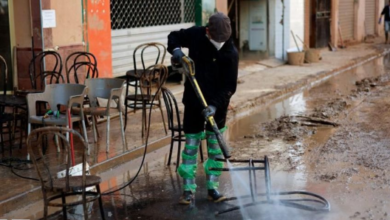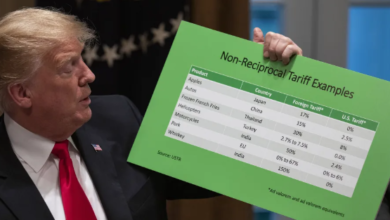Dubai court rejects Danish extradition request for financier

DUBAI, United Arab Emirates — A Dubai court ruled on Monday that a British man suspected of masterminding a $1.7 billion tax scheme cannot be extradited to Denmark to face charges.
The decision in the high-profile case grants the hedge fund trader, Sanjay Shah, a victory against Danish authorities who sought him for his role in one of the country’s largest-ever fraud cases. Monday’s court ruling, which judges delivered without explanation, can be appealed by prosecutors within 30 days.
The elaborate tax scheme, which ran for three years beginning in 2012, allegedly involved foreign businesses pretending to own shares in Danish companies and claiming tax refunds for which they were not eligible.
“Of course we will try to get him (out) on bail now immediately,” Shah’s lawyer, Ali al-Zarooni, told The Associated Press from the Dubai courthouse.
Prosecutors in Copenhagen did not immediately respond to request for comment.
The 52-year-old financier has maintained his innocence in past interviews with journalists but never appeared in Denmark to answer accusations. Al-Zarooni had contested the extradition, arguing in past closed-door hearings that Denmark had “breached” the rules of international extradition treaties in unspecified ways. He declined to elaborate on Monday.
Shah’s lifestyle on Dubai’s luxurious palm-shaped island over the past few years had sparked outrage in Denmark. After Danish authorities signed an extradition agreement with the UAE, Dubai police arrested Shah in June. Shah is one of several suspects in the tax scheme sought by Danish authorities.
During his time in Dubai, the hedge fund manager ran a center for autistic children that shut down in 2020 as Denmark tried to extradite him. He also oversaw a British-based charity, Autism Rocks, which raised funds through concerts and performances.
His arrest comes as pressure grows on Dubai, the region’s financial hub, over its alleged weaknesses in combating illicit finance. The UAE, a federation of seven emirates, has long invited the wealthy, including disgraced public figures, to invest in the country without questioning where they made their money. Scrutiny of Dubai has intensified as the flashy city-state becomes a haven for Russian money amid Moscow’s war on Ukraine.
In recent months, however, the UAE has arrested several suspects wanted for major crimes, including two of the Gupta brothers from South Africa, accused of facilitating vast public corruption and draining state resources with former President Jacob Zuma. An Emirati official also recently became president of Interpol, the international police agency.
———
Associated Press writer Isabel DeBre in Dubai contributed to this report.
Source link





